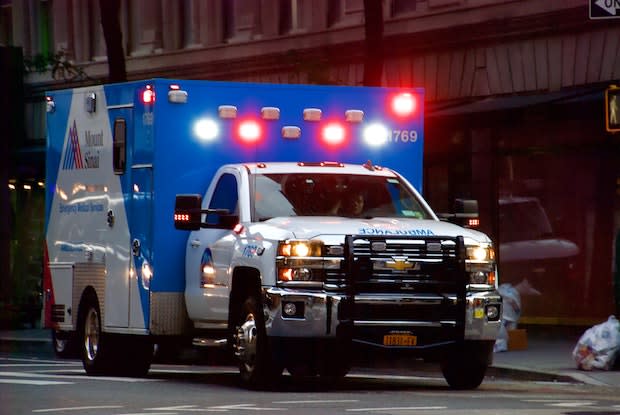Table of Contents
III. High Cholesterol and Blood Clots
High Cholesterol Overview
Your body needs healthy levels of cholesterol to function. High cholesterol occurs when cholesterol accumulates in the blood vessels and causes blockage. Blocked arteries can make it difficult for blood to reach your organs, increasing your risk of blood clot development. Symptoms of high cholesterol do not appear immediately.
Because high cholesterol is hard to detect, it is important to have your cholesterol checked every five years or so. If diagnosed earlier in the progression of this chronic condition, drugs like Crestor (rosuvastatin), Lipitor (atorvastatin), Zetia (ezetimibe), and Zocor (simvastatin) can be very effective in keeping cholesterol levels under control. If left unchecked, high cholesterol can lead to complications like chest pain, blood clots, heart attack, and stroke. [1]
Chest Pain
When high cholesterol slows the blood from getting to your heart, chest pain (angina) may occur. Angina is a symptom of heart disease and should not be ignored, even if it goes away quickly. When there are blockages in your blood vessels, your heart may not receive enough oxygen and nutrients, increasing your risk of a heart attack. Talk to your doctor if you are experiencing pressure or a squeezing sensation in your chest. Depending on the type of angina, you may need medication, along with lifestyle changes, to manage your chest pain. [2]
There are several different types of angina. The most common type is called stable angina and is triggered by physical activity or stress. Those who have stable angina are at a heightened risk of heart attacks and should seek treatment promptly. Unstable angina characterizes chest pain that occurs even when you are at rest. This type causes severe, long-lasting pain and may also be a sign of an impending heart attack. There is also microvascular angina, but this type is not caused by an artery blockage. [2] In people with a mild case of high cholesterol, their blood vessels may not be completely blocked. However, someone with severe high cholesterol may experience a blood clot when the cholesterol blocks the artery and causes a plaque rupture. If this happens, blood flow can stop entirely. But why do blood clots occur at the location of an arterial plaque rupture? This occurs because blood platelets in your body naturally seek out wounds and clot to prevent bleeding. While an external blood clot can save a life, an internal blood clot in a major vein can be life-threatening. [1] A blood clot that occurs in the heart will often cause a heart attack. Arrhythmias, or irregular heartbeat rhythms, can follow a heart attack and increase the risk of the heart stopping. The longer the heart stops, the more tissue can die and the weaker the heart becomes. If treatment is delayed, heart attacks can also damage heart valves and lead to heart failure in the long run. High cholesterol may seem harmless, but all of these complications can stem from high cholesterol. [3] During a heart attack, symptoms may include chest pain, fatigue, light-headedness, nausea, and sweating. People who have a heart attack may require a procedure to relieve pain and prevent future recurrences. Procedures can be surgical or non-surgical; common procedures include: If a blood clot happens near the brain, a stroke may occur. The two types of stroke are ischemic and hemorrhagic stroke, and high cholesterol can cause both types. Ischemic is the more common type and happens when the brain's blood vessels are severely blocked or narrowed by cholesterol build-up. A hemorrhagic stroke happens when a blood vessel in the brain ruptures. A stroke requires emergency medical attention to reduce brain damage and further exacerbations. [4] If you show signs of a stroke, you should seek medical help right away. Symptoms of a stroke include headache, trouble walking, blurred vision, trouble speaking, and paralysis or numbness. Because brain cells begin to die within minutes of being cut off from oxygen and nutrients, it is essential to get help immediately. You can reduce your risk of stroke by maintaining a healthy weight and avoiding risk factors like heavy drinking and smoking. [4] As mentioned above, high cholesterol usually does not have noticeable symptoms, so it is up to you to be proactive about maintaining healthy cholesterol levels. If you can catch it early, you may be able to lower your cholesterol with exercise and a healthy diet. In some cases, medications like Crestor (rosuvastatin), Lipitor (atorvastatin), Zetia (ezetimibe), or Zocor (simvastatin) may be necessary to keep cholesterol levels under control. With the rise of processed and packaged foods, people of all ages are at risk of high cholesterol. Talk to your doctor today to schedule an assessment. The content provided in this article is based on thorough research and in some cases, reviewed by a medical professional. Our goal for the information is to provide helpful, general health informational. It is not intended as a substitute for professional medical advice.
High Cholesterol and Blood Clots
Heart Attack

Stroke

Managing High Cholesterol
